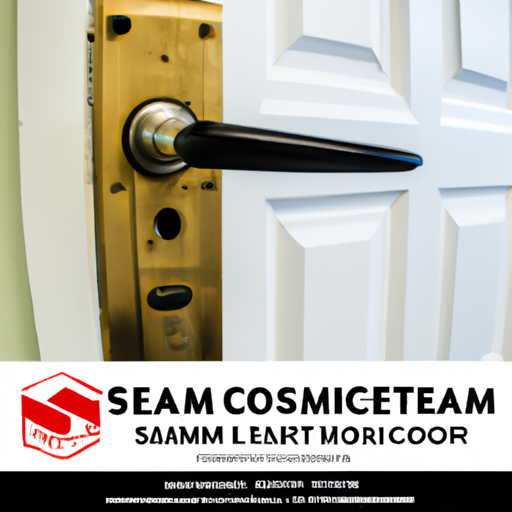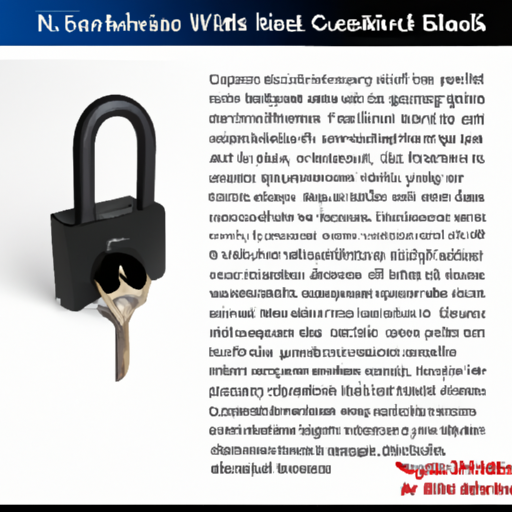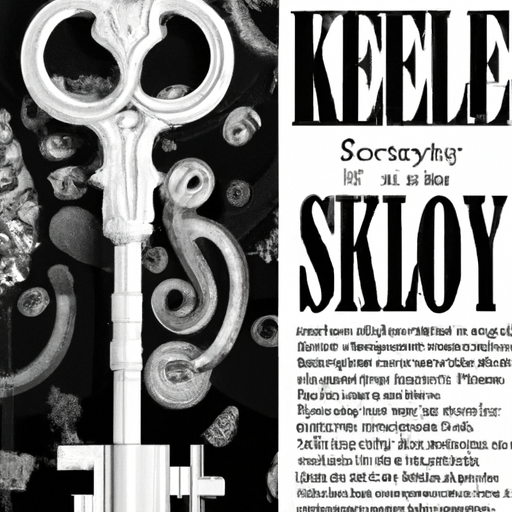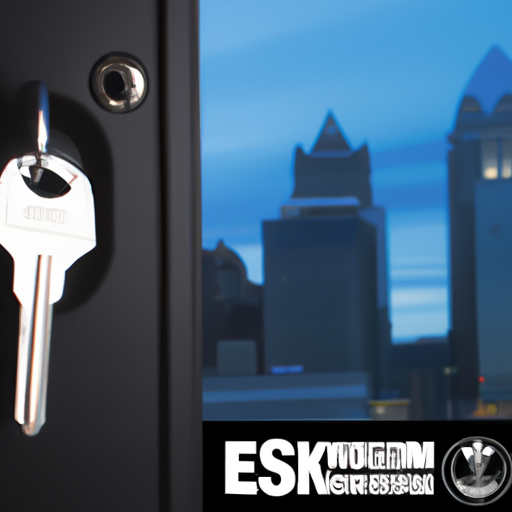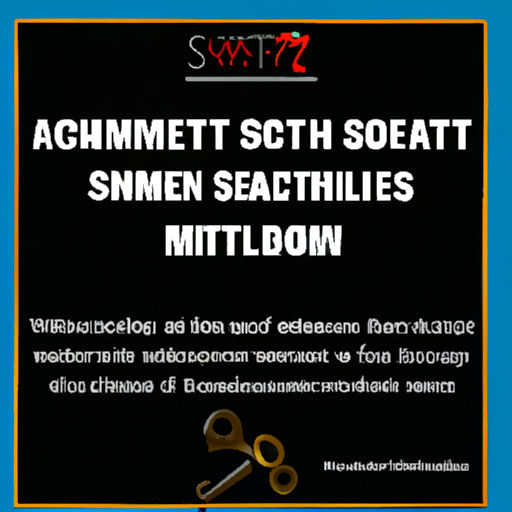
In this article, you’ll discover the most common scams that locksmiths in Charleston use. You’ll learn about the tactics they employ to take advantage of unsuspecting customers and how to protect yourself from falling victim to these scams. By the end of this article, you’ll have a better understanding of the red flags to look out for when hiring a locksmith and the steps you can take to ensure you’re dealing with a reputable professional.

Overview of Locksmith Scams in Charleston
Understanding the prevalence of locksmith scams
Charleston, like many other cities, has unfortunately experienced an increase in locksmith scams in recent years. These scams can leave unsuspecting individuals feeling vulnerable, frustrated, and cheated. It is essential to be aware of the common tricks and tactics employed by dishonest locksmiths to protect yourself from falling victim to these scams.
Types of scams commonly employed by locksmiths in Charleston
-
Misleading Advertising by Locksmiths: One of the most prevalent scams in Charleston is misleading advertising. Locksmiths often use deceptive tactics to attract customers. They may present themselves as local businesses when they are actually located elsewhere or use a generic name that is similar to a reputable locksmith company in the area.
-
Bait-and-Switch Pricing Tactics: Another common scam is bait-and-switch pricing. Locksmiths lure customers in with low prices advertised on their websites or listings, but then drastically increase the price once they arrive at the scene. This puts customers in a vulnerable position as they may feel compelled to pay the inflated charges.
-
Unlicensed and Untrustworthy Locksmiths: Hiring unlicensed locksmiths can be a risky proposition. These untrustworthy locksmiths may not have the necessary skills or qualifications to perform the job correctly. Furthermore, they may not have undergone proper background checks, increasing the risk of potential theft or damage to your property.
-
Fraudulent Emergency Service Scams: Emergency locksmith situations can be stressful, and scammers take advantage of this by employing manipulative tactics during such calls. They may exaggerate the urgency of the situation and charge excessive fees for emergency services, leaving customers feeling exploited and ripped off.
-
Unethical Locksmith Techniques: Some locksmiths intentionally damage locks to increase charges. They may claim that the lock needs to be replaced entirely, even though a simple repair would suffice. These unethical techniques inflate costs and take advantage of customers’ lack of knowledge about locks and security systems.
-
Harassing Customer Service Practices: Persistent telemarketing tactics are often used by unscrupulous locksmiths to target potential customers. Unsolicited calls offering locksmith services can be irritating and intrusive, creating a negative customer experience. Moreover, aggressive sales techniques and a lack of proper customer support contribute to a sense of distrust toward locksmiths in general.
-
Identity Theft and Unauthorized Access: Locksmiths have access to personal information and the ability to enter your property, placing you at risk of identity theft or unauthorized access. Dishonest locksmiths may misuse this information for illegal activities or share it with third parties. It is crucial to be cautious when selecting a locksmith and ensure they have a reputable track record.
-
Rogue Locksmith Associations and Networks: Fraudulent locksmith associations and networks exist, making it challenging for customers to identify legitimate locksmiths. These associations may provide fake certifications or accreditations, leading customers to believe they are dealing with trusted professionals. It is essential to verify the credentials and affiliations of locksmiths before hiring them.
Misleading Advertising by Locksmiths
The deceptive tactics used in locksmith advertisements
Locksmiths who engage in misleading advertising mislead customers through deceptive tactics. They often create online listings or websites that falsely claim to be local businesses. By presenting themselves as local locksmiths, they can attract customers who are more likely to trust and rely on nearby service providers.
False claims and exaggerated services offered by locksmiths
Another common tactic employed by locksmith scammers is making false claims and exaggerating the services they offer. They may advertise services that they are not trained or licensed to provide. For example, a dishonest locksmith may claim to be a specialist in high-security locks or advanced alarm systems, despite lacking the necessary expertise.
Bait-and-Switch Pricing Tactics
How locksmiths lure customers with low prices
Locksmith scammers often use bait-and-switch pricing tactics to lure customers in. They advertise unrealistically low prices to gain attention and attract potential clients. These prices can seem too good to be true, but customers may be enticed to hire these locksmiths due to the apparent affordability.
Unexpected price increases and hidden fees
Once the locksmith arrives at the scene, the customer is hit with unexpected price increases and hidden fees. The locksmith may claim that the job is more complicated than initially anticipated, justifying the inflated charges. This can leave customers feeling trapped or coerced into paying significantly more than they had initially agreed upon.
Unlicensed and Untrustworthy Locksmiths
The risk of hiring unlicensed locksmiths
Hiring unlicensed locksmiths poses significant risks. Without proper licensing, these locksmiths may not have undergone background checks or demonstrated a level of competence in their field. By choosing an unlicensed locksmith, you run the risk of inviting an unknown person into your home or business, potentially compromising your security and safety.
Tips to identify reputable locksmiths in Charleston
To avoid falling victim to unlicensed and untrustworthy locksmiths, it is essential to take the following steps when choosing a locksmith in Charleston:
-
Research: Conduct thorough research on locksmiths in your area. Look for professionals who are licensed, insured, and have positive customer reviews.
-
Get Recommendations: Reach out to friends, family, or neighbors who have recently used locksmith services. They can provide personal recommendations based on their experiences.
-
Verify Credentials: Check the locksmith’s credentials and confirm their licenses and accreditations. You can contact the appropriate licensing agencies in Charleston to ensure their legitimacy.
-
Ask for Identification: When the locksmith arrives, ask for proper identification and credentials. Reputable locksmiths will have no issue providing proof of their qualifications.
-
Ask for Written Quotes: Obtain written quotes from multiple locksmiths before making a decision. This allows you to compare prices and avoid surprise charges later on.
-
Read Contracts and Agreements: Before signing any contracts or agreements, carefully read and understand the terms and conditions. If anything seems unclear or suspicious, seek clarification or consider seeking assistance from another locksmith.

Fraudulent Emergency Service Scams
Manipulative tactics used during emergency locksmith calls
During emergency locksmith situations, scammers employ manipulative tactics to pressure and exploit customers. They create a sense of urgency, convincing the customer that immediate action is required to resolve the issue. This can lead individuals to agree to excessively high fees without considering alternative options or obtaining multiple quotes.
Charging excessive fees for emergency services
Fraudulent locksmiths take advantage of the vulnerable state of customers during emergency situations, charging exorbitant fees for their services. Customers who are locked out of their homes or vehicles are more likely to agree to the inflated charges due to the urgent nature of the situation. This unethical practice preys on the distress of individuals in need of immediate assistance.
Unethical Locksmith Techniques
Damaging locks intentionally to increase charges
Some locksmiths engage in unethical techniques such as intentionally damaging locks to justify higher charges. They may claim that the lock is beyond repair and needs to be entirely replaced when, in reality, a simple fix could have sufficed. This deceptive practice is aimed at increasing profits by inflating the cost of the job.
Unnecessary component replacements to inflate costs
Similarly, locksmith scammers may suggest unnecessary component replacements to inflate costs. They may insist that certain parts need to be replaced, even if they are still functioning correctly. Customers who are unfamiliar with the intricacies of locks and security systems may be easily persuaded and agree to these unnecessary replacements, resulting in higher charges.

Harassing Customer Service Practices
Persistent telemarketing tactics used by locksmiths
Locksmith scammers often employ persistent telemarketing tactics to target potential customers. They may make unsolicited phone calls offering their services or send numerous text messages and emails. These tactics can be annoying and intrusive and create a negative impression of locksmith companies in general.
Aggressive sales techniques and lack of customer support
When customers engage with dishonest locksmiths, they may encounter aggressive sales techniques and a lack of proper customer support. Scammers prioritize closing deals and maximizing their profits rather than providing excellent service and support. This can create a frustrating and discouraging experience for customers, amplifying their distrust of locksmiths.
Identity Theft and Unauthorized Access
The risk of locksmiths misusing personal information
Locksmiths have access to personal information, including addresses and contact details, as well as the ability to enter properties. This puts individuals at risk of identity theft or unauthorized access. Dishonest locksmiths may misuse this information for illegal activities or share it with third parties, leading to potential financial and personal security concerns.
Preventing identity theft through proper locksmith selection
To protect yourself from identity theft and unauthorized access, it is crucial to exercise caution when selecting a locksmith. Follow these steps to minimize the risk:
-
Research and Verify: Research locksmiths thoroughly and verify their credentials and affiliations. Use reputable online review platforms and double-check references and qualifications.
-
Protect Personal Information: Avoid sharing unnecessary personal information with locksmiths. Provide only the information required for them to complete the job and ensure they handle it securely.
-
Monitor Billing and Statements: Regularly monitor your credit card statements and bank transactions to identify any unauthorized or suspicious activity. Report any discrepancies to the relevant authorities immediately.
-
Maintain Vigilance: Be vigilant about protecting your personal information and do not hesitate to ask questions or seek clarifications if anything seems suspicious or out of place.
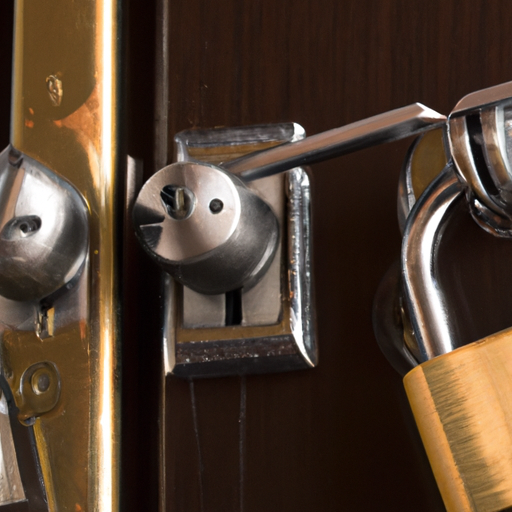
Rogue Locksmith Associations and Networks
The presence of fraudulent locksmith associations
Fraudulent locksmith associations and networks exist, making it challenging for customers to identify legitimate locksmiths. These associations issue fake certifications or accreditations that can mislead customers into believing they are dealing with trustworthy professionals. It is crucial to be aware of these fraudulent associations and verify the credentials of locksmiths independently.
How to avoid locksmiths associated with scams
To avoid locksmiths associated with scams and rogue associations, implement the following measures:
-
Check Accreditation: Verify the accreditation of locksmiths independently. Do not solely rely on certifications provided by the locksmith or any affiliated association.
-
Do Independent Research: Conduct independent research on locksmith associations and networks to identify fraudulent ones. Utilize online resources and forums to gather information from others’ experiences.
-
Ask for Referrals: Seek referrals from reputable sources such as friends, family, or local businesses. They are more likely to recommend trustworthy locksmiths who have provided satisfactory services in the past.
-
Trust Your Instincts: If something feels off or too good to be true, trust your instincts and proceed with caution. Take the time to thoroughly evaluate locksmiths before making a decision.
Conclusion
Remaining vigilant against locksmith scams is essential for protecting your personal and financial security. By understanding the most common scams employed by locksmiths in Charleston, you can make informed decisions and avoid falling victim to dishonest practices.
When searching for locksmith services, be aware of misleading advertising, bait-and-switch pricing tactics, unlicensed locksmiths, emergency service scams, unethical techniques, harassing customer service practices, the risk of identity theft, and rogue locksmith associations. By following the recommended tips and exercising caution, you can seek assistance from trusted locksmith professionals in Charleston while avoiding scams and fraudulent practices.
